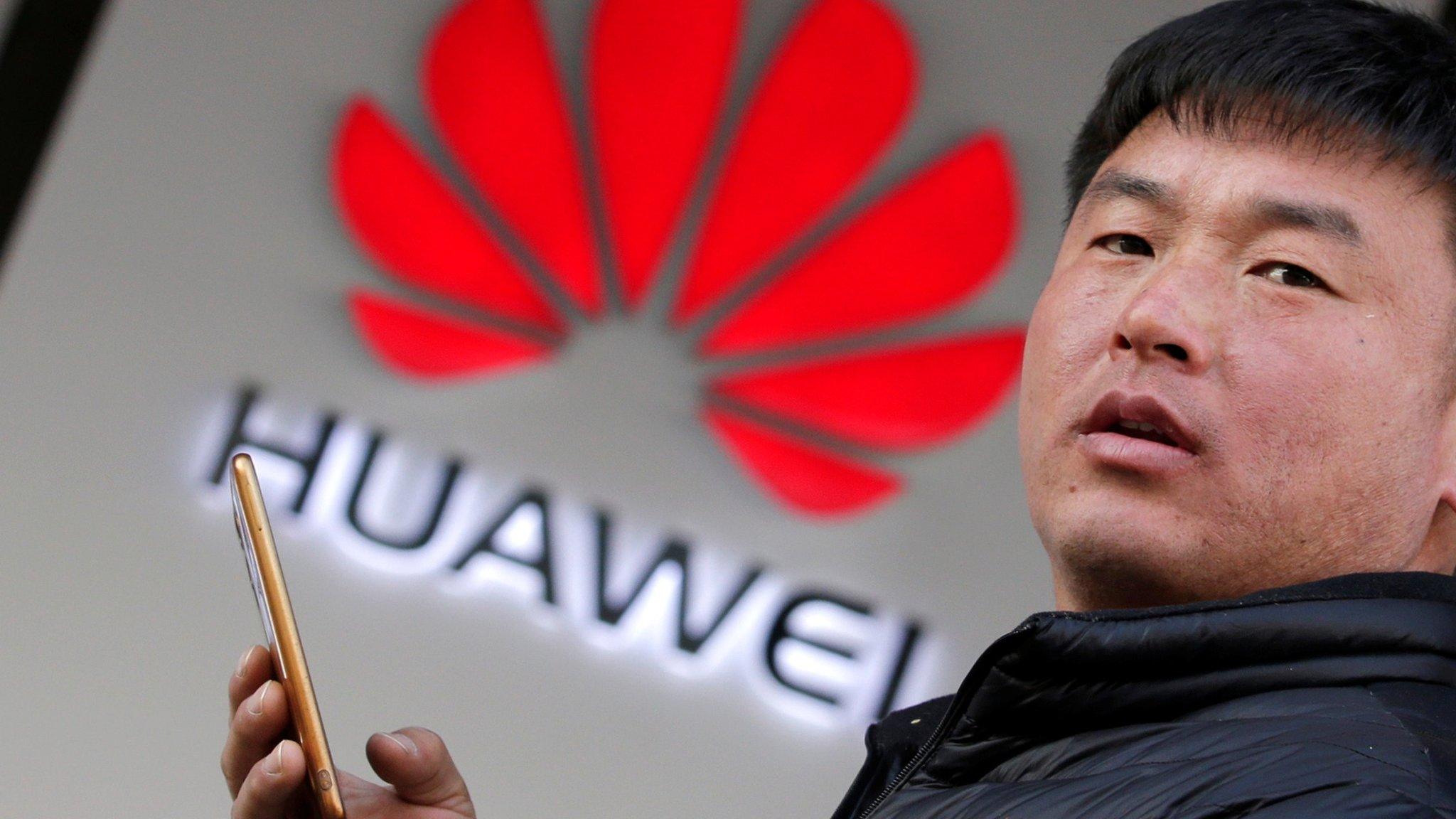Tech Tent: Can we trust the telecoms giants?
- Published

This week, a basic error by Sweden's Ericsson took millions of mobile customers offline, while its Chinese rival Huawei faced mounting pressure from those who consider it a security risk.
On the latest Tech Tent podcast, we ask: can we trust the telecoms industry?

Early on Thursday, more than 30 million mobile phone users in the UK found that they could not get access to their data service.
Similar problems were reported by mobile operators in Japan and China. The outage at the O2 network lasted for nearly 24 hours and served to underline how dependent we have become on being connected while on the move.
A few years ago this incident would have been a minor annoyance to the small number of smartphone users.
But average monthly mobile data use has increased twenty-fold in the UK since 2011, with phone owners using them for everything from streaming music to ordering taxis and takeaways.
For the increasing number of people and businesses that depend on mobile apps to organise their work, this was more than an inconvenience - it cost them money.
'Digital catastrophe'
Deliveroo couriers and Uber drivers could not work if they used O2. The information system at London bus stops was out of action, and a care agency that despatched staff to people's homes via an app reported that the outage "brought our company to a halt".
"It's a digital catastrophe," the mobile analyst Marta Pinto from the IDC consultancy tells us. "People are blocked out from their lives, from their social media, from their banks, from their data, even from their pictures in the cloud."
At the start of the day, O2 had blamed a software problem with an unnamed "third-party provider".
It soon emerged that this was the Swedish telecoms giant Ericsson, which then issued an apology and this startling admission: "An initial root cause analysis indicates that the main issue was an expired certificate in the software versions installed with these customers."
Our special guest Kate Bevan, of Which Computing, tells us she put her head in her hands and groaned when she heard this.
"It's a really basic thing," she says. "A certificate sets up the encrypted connection between the server and your device."
If certificates are allowed to expire, as happened here, everything falls over.
But if one of the world's major telecoms providers was fouling up, its biggest rival was having an even worse week.
China's Huawei was already under pressure as the US told its allies not to trust a firm it claims is closely linked to the Chinese government.

Huawei executive Ms Meng has been arrested
Later, one of its most senior executives was arrested in Canada. She faces extradition to the US, apparently accused of busting sanctions on Iran.
Cyber-security expert Prof Alan Woodward tells us we should be concerned about these clouds over two of the biggest players in global telecoms.
Speaking of Ericsson's error, he says: "Inadvertently it managed to take down a whole network. Imagine if somebody tried to do that deliberately."
He points out that firms like Huawei "hail from countries where their governments have extraordinary powers to compel them to do things".
The EU Commissioner Andrus Ansip echoed that view on Friday, suggesting that firms such as Huawei were required to co-operate with Chinese intelligence services, by installing back doors in their equipment and producing chips that could be used "to get our secrets".
Huawei hit back, saying it had "never been asked by any government to build any back doors or interrupt any networks" and "would never tolerate such behaviour by any of our staff".
Ericsson, Huawei and Finland's Nokia are competing to build the next generation 5G networks.
In the 5G era, just about everything as well as everybody will be connected to the internet. That means any failure - whether inadvertent or deliberate - could cause chaos on a different scale from what we saw this week.
Also on this week's podcast:
the latest triumph for Google's DeepMind AI division: a system that teaches itself to play chess like a grandmaster
and we look back at the "mother of all demos" in 1968, when Doug Engelbart showed off the mouse, a graphical user interface and other features of modern computing
- Published18 January 2019
